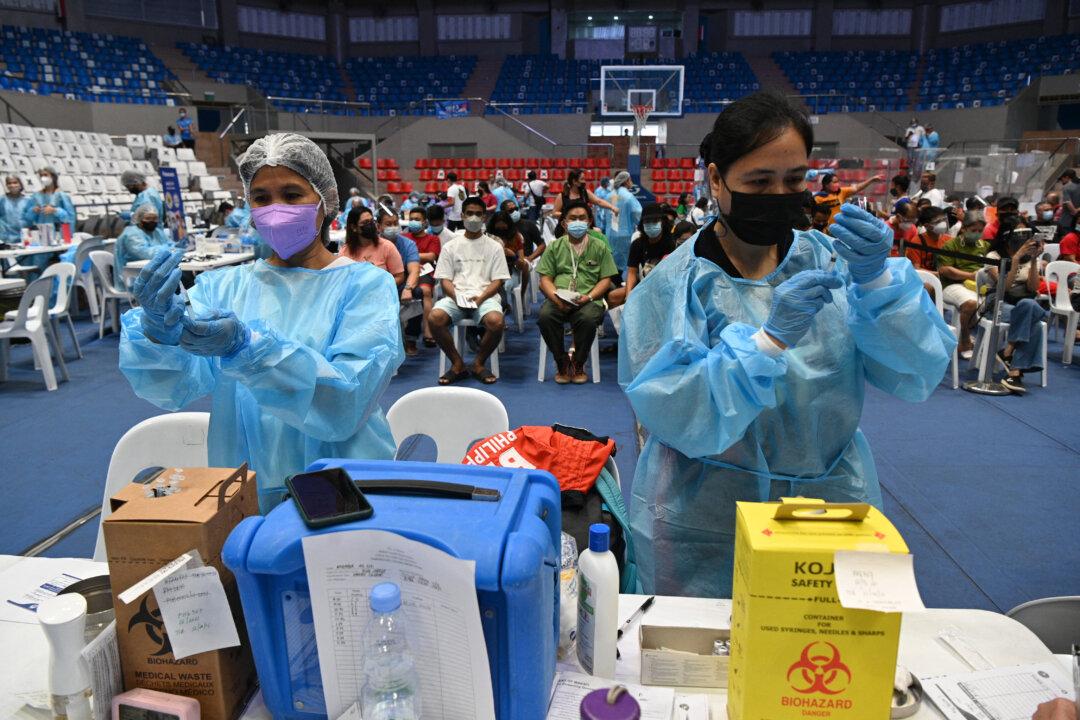The Philippines has kicked off an ambitious campaign to vaccinate nine million people in three days, as it temporarily suspended flights from countries with cases of the Omicron variant, a new variant of the CCP (Chinese Communist Party) virus.
“This is our single biggest push to fast-track vaccination and reaches our target of 70 percent population protection nationwide,” President Rodrigo Duterte said at a vaccination site in the capital Manila on Nov. 29.





